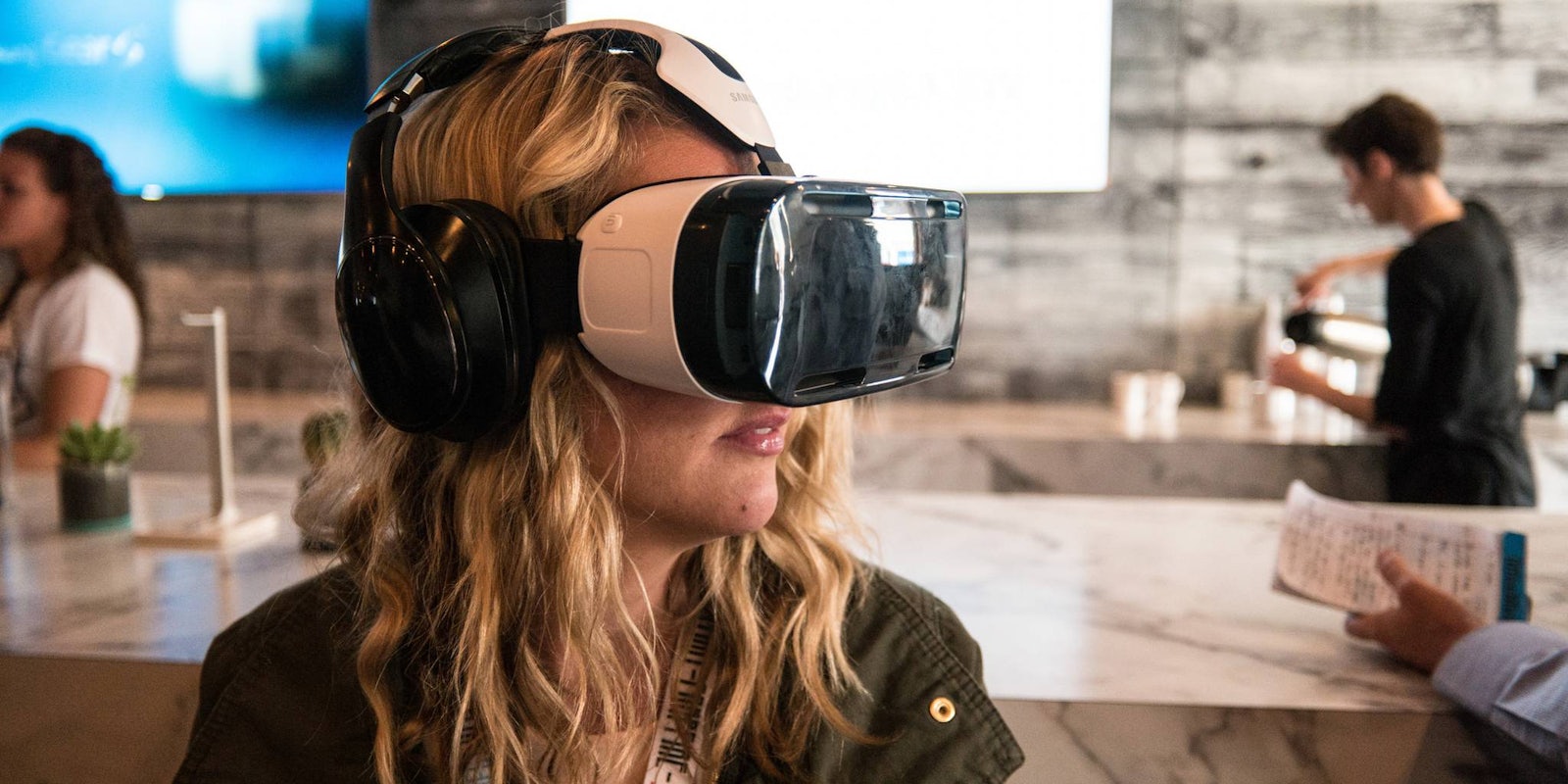If there’s one group that passionately express their fervor for virtual reality more than any other, it’s the video game industry.
Over the past two or three years, I’ve seen countless previews and headlines declaring VR as the latest trend in gaming, usually portraying young teens clad in headsets and motion controllers fully immersed within a virtual world. Although I, among many others, have no doubt that VR is indeed changing how we see and define video games, I firmly believe that the scope of immersive 3D environments is much broader than that.
By its very nature, VR is about providing users with a breadth of immersive experiences across all mediums. While its ability to transport people into a virtual world where they can “become the superhero” makes it especially attractive for video game, movie, and television properties, the biggest, most opportunistic category will be social.
Over time, as leading content providers like Facebook and Oculus use this technology to cater to our need for social interaction, the majority of people will realize that VR is not peripheral. It’s a sophisticated tool that can be used to connect with others around the world and co-experience in highly detailed 3D environments.
The birth of a new film and video game genre
Multiplayer video games are beginning to resemble social platforms more and more. With the proliferation of high-speed internet, socializing around games has evolved from split-screen couch co-ops to a vast online network of real players across the globe. Now, the emergence of VR is giving birth to a new category of online multiplayer interaction: co-experience.
User-generated content (UGC) platforms such as Minecraft, Second Life, and ROBLOX, the company I founded, are fostering this new genre by supporting experiences that satisfy a wide variety of social activities not usually provided in traditional video games. For example, users can immerse themselves in the everyday life of a high school student and hang out with their friends in a virtual classroom; they can play hide and seek with each other in incredibly detailed 3D worlds or attempt to survive a natural disaster together. These are the types of fun, authentic social experiences that already work well without VR and will work even better with it.
Moreover, VR offers major implications for the entertainment industry, building off of popular story-driven interactive adventure games like Heavy Rain and those from publisher Telltale Games. By blending together choreographed cut-scenes with an engaging choose-your-own-adventure narrative in these titles, the players get to create their own cinematic experience. The addition of VR can expand the genre’s relevance beyond the traditional gaming community to a broader audience who may be less interested in the play aspect and more interested in seeing a story unfold from the first-person perspective of a primary character.
Real-world events become more real
With innovations in VR cameras and even higher-speed internet connections on the way, the current practice of sharing and viewing photos or clips of events will radically shift to capturing 360-degree panoramas or livestreaming.
In the future, family and friends will watch and visit these events in VR. People will livestream personal events ranging from children’s birthdays to weddings and graduations, turning important memories into digital VR recordings that can be navigated, re-experienced, and shared. You will feel as if you’re really there standing next to your friends and family, as if you’re truly present in the scene.
For media and entertainment industries, localized events can become worldwide experiences where users can get the perspective of a live spectator. This includes sold-out concerts, celebrated theater experiences, or serious journalistic reporting, offering a deeper outlook on world news or historical events that will be reexamined by students for generations to come.
It also means being able to go where no man or woman has gone before, with companies like SpaceVR working on sending VR cameras into space for users to experience space travel first-hand from the comfort of their homes.
Co-experience is the killer app for VR
VR will ultimately transform social media, chatrooms, and forums.
Conversations will move from primarily text-based communications to real-time conversations with audio and potentially digitized facial emotional responses via emerging technologies in the field. We’re already seeing the early stages of this with VR-driven social apps like AltspaceVR and VRChat, as well as gaming platforms with VR capabilities like ROBLOX. Users can meet and converse face-to-face with other users’ personalized 3D avatars in virtual worlds, ranging from personal chat spaces for family and friends to public spaces where millions can connect on common interests such as entertainment, news, health, lifestyle, hobbies, politics, and education.
Many storytelling and communications companies are heading in a bold new direction with the arrival of VR technology, especially in the social and entertainment space. VR will never replace real-life interaction, but it will offer powerful social experiences that would never be possible in the real world. This is a future in which VR-enabled co-experiences will supplement and amplify real-life relationships, as well as offer immersive, fun, thought-provoking, and engaging adventures that bring people closer to family, friends, and the rest of the world.
Say hello to the ultimate killer app.
David Baszucki is the founder and CEO of ROBLOX. A pioneer in pushing the boundaries of the imagination, Baszucki has helped champion millions of young and up-and-coming developers in the video game industry via the ROBLOX platform.


